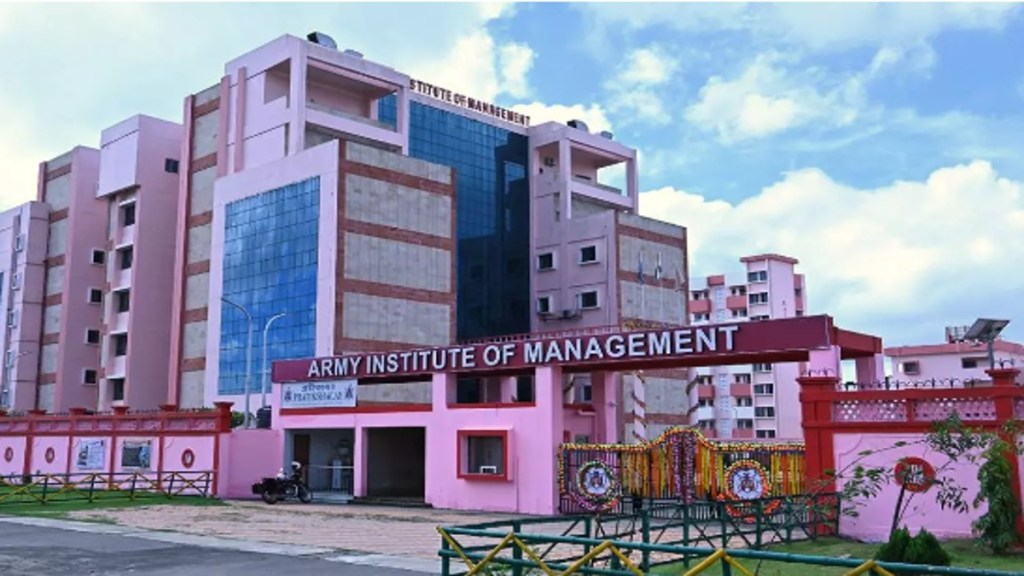The Army Institute of Management Kolkata, recently hosted a discussion by Rosinka Chaudhuri, director of The Centre for Studies in Social Sciences Calcutta (CSSSC), on Mathematics and Discrimination in Colonial India, as per the press statement.
Abhishek Kumar, AIMK’s Principal, initiated the event by highlighting math’s profound impact on human lives. He categorised it into two branches: arithmetic and geometry, drawing parallels to Plato’s academy with the famous inscription, “Let no man ignorant of geometry enter.”
Kumar explained how geometry relates to space, arithmetic to time, shaping human existence. He introduced the equation “history + time = Politics,” acknowledging human fallibility’s role in this equation.
Rosinka Chaudhuri, cultural studies professor, then engaged the audience with her research on Radhanath Sikdar, an unsung hero in Indian mathematics. She explored Sikdar’s life, remarkable achievements and pivotal role as Chief Computer of the Trigonometry Society of India. Dr. Chaudhuri highlighted Sikdar’s critical contribution to calculating Mt. Everest’s height, named in tribute to his superior, George Everest. She also emphasised Mr. Everest’s preference for local names, sharing intriguing anecdotes about Sikdar’s personality and his bold legal battle against a Dehradun magistrate’s misuse of official employees.
The discussion sparked strong audience participation, with attendees raising numerous questions and providing valuable insights. In the Q&A session, Dr. Chaudhuri drew comparisons between the challenges encountered by the University of Oxford and the University of Cambridge when confronting their colonial histories, exploring the various strategies these institutions have employed, statement highlighted.
